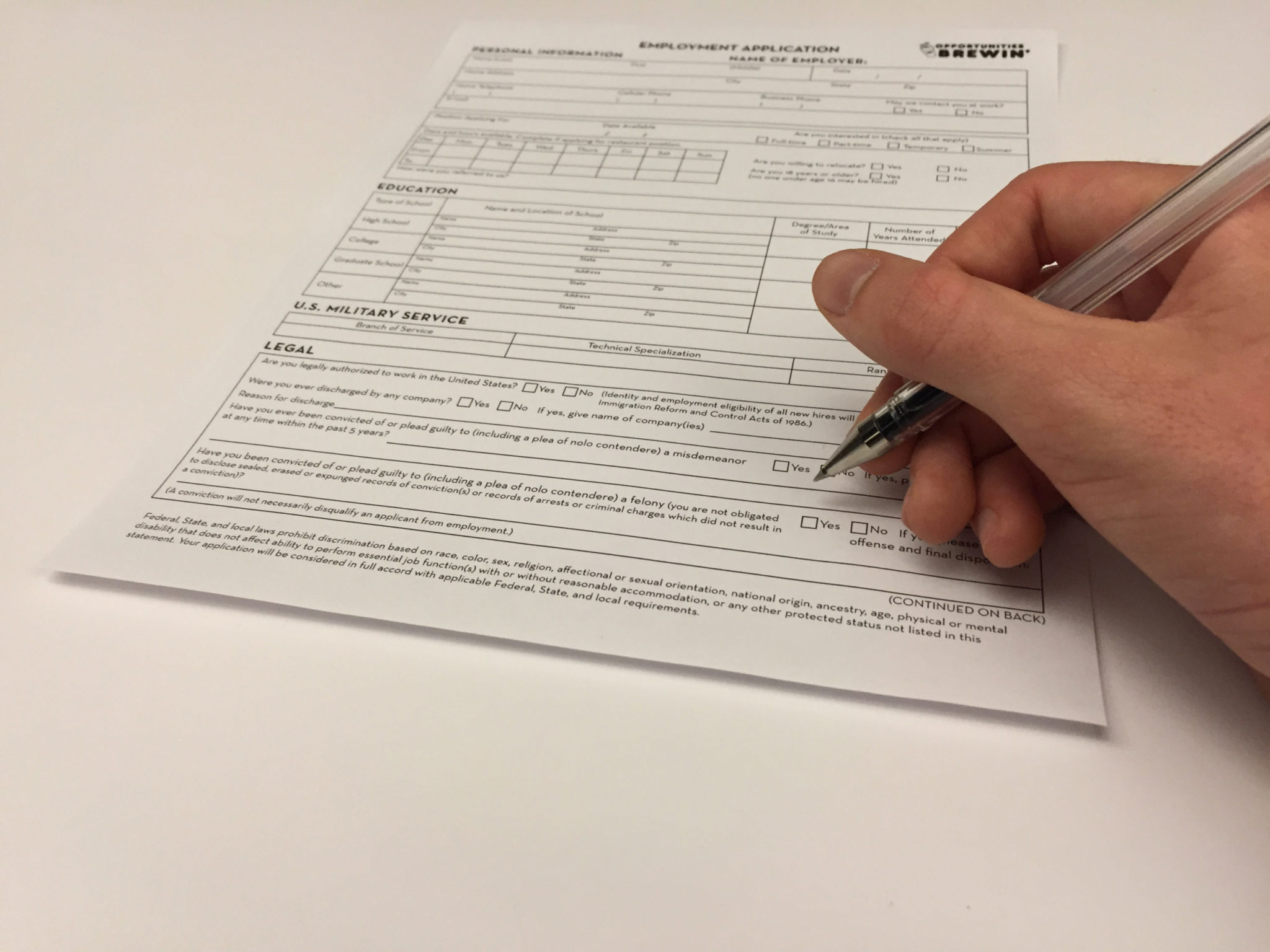
Yale Daily News
The Justice Impact Movement and the Yale College Council are calling on Yale admissions to ban questions about an applicant’s criminal record, in a new report and through a meeting with Yale admissions officials.
JIM is an initiative associated with the Yale Undergraduate Prison Project that focuses on eliminating barriers to education for formerly incarcerated people. Over the past month, JIM collaborated with the YCC to issue a report recommending that Yale “ban the box” — meaning that they remove questions about criminal record — from the Yale College application. Ban the Box is a national campaign which seeks to reduce the collection of criminal justice information in applications for jobs and universities by removing the “box” that formerly-incarcerated people must check to indicate that they have been convicted of a crime.
“Education is crucial for the successful reintegration of formerly incarcerated people into society, which benefits justice-impacted people themselves as well as their families and communities,” the JIM and YCC report read. “Specifically, we believe institutions of higher learning should not discriminate against otherwise qualified candidates for admission solely based on prior interaction with the justice system.”
On March 30, members of the YCC and JIM met with representatives from the Office of Undergraduate Admissions to advocate for the removal of an inquiry on Yale’s application into applicants’ disciplinary histories. According to Grace Freedman ’24, JIM founder and executive director, the meeting was “really productive” and the Office of Undergraduate Admissions plans to revisit the topic later in the semester.
Dean of Undergraduate Admissions and Financial Aid Jeremiah Quinlan confirmed to the News that the meeting occurred but declined to comment further on the matter.
During the 2019-2020 admissions cycle, the Common Application permanently removed its criminal history question. However, Yale still includes a criminal history question in the Yale-specific section of the Common Application. The question asks applicants, “Have you ever been convicted of, or pled guilty or no contest to, a misdemeanor or felony, or are there any criminal charges pending against you?”
“The very collection of criminal justice information has a chilling effect on prospective students who believe that Yale will not admit them because of their previous interactions with the justice system,” said YCC Vice-President Reilly Johnson ’22.
Johnson has overseen the YCC’s engagement with JIM on this initiative, establishing a task force composed of YCC Senators and JIM members. Task force members drafted the comprehensive report, which provides background on the issue and formally asks Yale Undergraduate Admissions to “ease the collection and usage of criminal justice information.”
According to Johnson, the report also presents secondary recommendations in case the task force’s demand that the Office of Undergraduate Admissions “ban the box” entirely is unsuccessful. These include collecting criminal justice information only after students have accepted their offers of admission, limiting inquiries about criminal history to specific offenses like stalking or sexual assault and “re-evaluating how and in what contexts criminal justice information is used.”
Melat Eskender ’24, a Morse College senator and member of the task force, emphasized the racially disproportionate effect of the collection of criminal justice information.
“This issue is important to me because, as a Black woman, I know intimately how my community is overpoliced and disproportionately incarcerated,” Eskender said. “Racial inequality is so pervasive in the criminal justice system that it is impossible for the inquiry and usage of criminal justice information in college applications to be a race-neutral practice.”
According to Eskender, the Office of Admissions seemed open to adopting the policies of institutions like New York University, which does not include criminal justice information in their first reading of undergraduate applications.
Eskender also noted that the task force cares “immensely” about campus safety. She noted that the only study conducted on the relationship between criminal record screening and campus safety did not find a statistical difference in the rate of campus crime between institutions that did or did not collect criminal justice information. The study, a 2015 report from the Center for Community Alternatives, found that crimes committed on college campuses are more often committed by students without prior criminal records.
“There is no reason that formerly incarcerated or justice-impacted individuals should be discouraged from receiving a degree,” said Zoe Hsu ’24, the YCC equity chair. “Five states and 50 universities have already banned the box; Yale should follow suit.”
Universities that have banned the box include the University of California system and the State University of New York system.
Although JIM and the YCC’s report was Yale-specific, JIM is also pursuing more general ways to ban the box in higher education. Freedman has authored and proposed “H.B. 6228: Ban the Box in Higher Education,” a bill in the Connecticut State Legislature that prohibits higher education institutions from using information about criminal history in admissions and financial aid decisions.
Should H.B. 6228 pass and become law, it would force Yale and other Connecticut institutions to ban the box in admissions. However, Freedman hopes that Yale will choose to do so regardless.
“Hopefully, we will have legislation that passes and that will be implemented the following year,” Freedman said. “But we’re trying to make it so that Yale can lead on this before they are just pushed legally to do it — they could actually stand up and lead in this fight for increasing access to higher education.”
The Connecticut Legislative Session will last until June 9.
Amelia Davidson | amelia.davidson@yale.edu
Lucy Hodgman | lucy.hodgman@yale.edu










